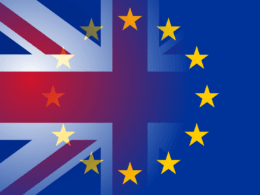The economic ravages of Covid-19 are well-documented. As we look with hope and guarded optimism towards recovery from the global pandemic, regulators and legislators across the world are looking for ways to stimulate economic growth and development in an unprecedented landscape.
Italy could be one of the first countries to make regulatory changes aimed at securing increased revenue from sports betting. Italy’s football federation, the FIGC, has requested that Prime Minister Mario Draghi’s government lift the country’s betting sponsorship and advertising ban, at least temporarily.
Italy’s Sports Betting Regulations
The ban has been in force since the beginning of January 2019 and prohibits betting-related product placements, influencer campaigns and branded item distribution linked to sporting events. Italian football clubs have sought alternative revenue streams, but the FIGC says that this has not been enough to offset the damage caused by the pandemic. As a result, they are seeking a temporary lifting of the measures until at least the end of June 2023.
The Italian football league is also pushing for a Football Savings Fund to be created during the same timeframe, with 1% of all sports bets placed in Italy delivered to a national fund that the FIGC will manage. This as well as tax and contribution relief for organizations in the sporting sector.
Potential Economic Boosts for Regulatory Changes
It is unclear as to whether Mario Draghi’s government will accept the FIGC’s proposals. However, the potential changes will certainly be considered with care. Football is Italy’s national sport, and teams such as Inter and AC Milan, Juventus and Roma — as well as countless other teams from the league system across the nation — provide massive amounts of revenue to the country’s economy. As FIGC president Gabriele Gravina says, “Football can play a decisive role in Italy’s overall recovery. [We ask the government to] recognize the socio-economic importance that football has.”
It is not only the FIGC that is placing Mario Draghi and his government under pressure. The decision to reduce the awarding of gambling licenses from 85 to 50 by 2023 has been met with anger by the European Gaming and Betting Association (EGBA). The EGBA has opted to bring this matter to the European Commission.
Broader Changes Possible in the Wake of Covid-19
The situation in Italy is not a unique one. Countless countries in all areas of the globe have been brought to their knees by the pandemic and by the subsequent measures brought in to control it. Governments need to be innovative if they are to support a return to economic prosperity, and this may include a restructuring of key pieces of legislation, regulation and control.
Well-regulated betting and online gambling markets can provide a significant boost to local and national economies — boosts that will be much-needed as we look towards recovery from Covid-19. It is likely that governments and regulators will recognize this as they target swift and effective economic stimuli.










